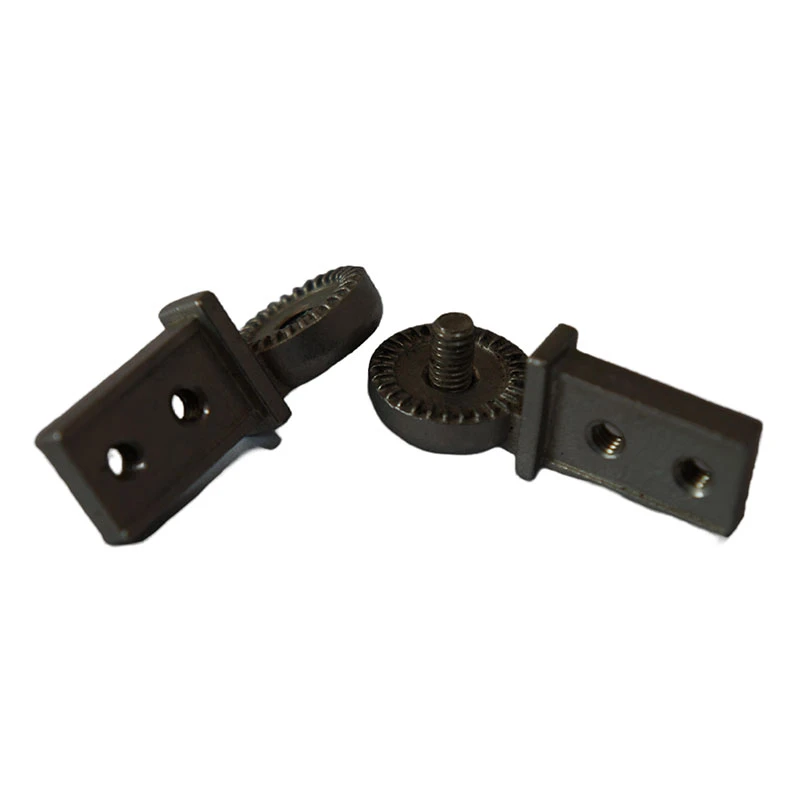metal precision components
Metal Precision Components The Backbone of Modern Manufacturing
In the rapidly evolving landscape of manufacturing, precision is paramount. At the heart of this precision lies metal precision components—small but vital parts that play critical roles in various applications ranging from automotive to aerospace and electronics. These components are characterized by their tight tolerances, fine surface finishes, and the ability to meet stringent specifications, making them indispensable for today’s high-tech industries.
What are Metal Precision Components?
Metal precision components are manufactured parts that are machined to exact specifications using various materials, primarily metals like aluminum, steel, brass, and titanium. The production process often involves advanced manufacturing techniques, including CNC (Computer Numerical Control) machining, precision casting, and metal stamping. These methods allow for the creation of complex geometries and intricate designs that would be challenging to achieve through traditional manufacturing techniques.
The quality of these components significantly influences the overall performance and reliability of the products they are used in. For example, in the automotive industry, precision components contribute to the efficient operation of engines, transmission systems, and braking mechanisms. In aerospace, they ensure the safety and reliability of aircraft by meeting exacting performance criteria.
The Importance of Precision
The significance of precision in metal components cannot be overstated. Tolerances in manufacturing refer to the permissible limits of variation in a specified dimension, and in industries where safety and functionality are critical, even the slightest deviation can lead to significant consequences. For instance, in aerospace applications, a misaligned component may compromise the structural integrity of an aircraft, posing serious safety risks.
To ensure precision, manufacturers employ a variety of quality control measures, including rigorous inspection processes. Advanced techniques such as laser scanning, coordinate measuring machines (CMM), and automated vision systems are increasingly utilized to meet the high standards expected by clients. Additionally, many manufacturers adhere to international quality standards, such as ISO 9001, ensuring that their products consistently meet or exceed industry requirements.
metal precision components

Applications Across Industries
The versatility of metal precision components is evident across a wide array of industries. In electronics, they are used in connectors, housings, and heat sinks that require precise dimensions for optimal performance. The medical industry relies on these components for surgical instruments and implants, where accuracy is paramount to ensure the safety and effectiveness of devices.
Moreover, the growing trend toward automation and smart manufacturing is driving demand for high-precision parts. As industries strive for greater efficiency and lower production costs, the need for reliable metal components that can withstand high-performance environments increases. This is particularly true in sectors like robotics and renewable energy, where precision is critical for integrated systems to function seamlessly.
The Future of Metal Precision Components
As technology continues to advance, the manufacturing of metal precision components is poised for significant transformation. Emerging technologies such as additive manufacturing (3D printing) and the integration of Artificial Intelligence (AI) in production processes promise to revolutionize the way precision parts are designed and produced. These innovations enable manufacturers to create components that are not only lighter and stronger but also more cost-effective.
Sustainability is also becoming a focal point in the manufacturing of metal precision components. As industries strive to reduce their carbon footprint, the use of recycled materials and energy-efficient production practices is on the rise, ensuring that the future of precision components aligns with environmental responsibility.
Conclusion
Metal precision components are the unsung heroes of modern manufacturing, enabling complex systems to function effectively and reliably. As industries evolve and new technologies emerge, the demand for these high-quality components will only grow, driving innovation and enhancing manufacturing capabilities. In a world where precision is crucial, metal precision components stand as a testament to the importance of quality in engineering and design.
-
OEM Sand Cast Pump Valve Fittings - Hairun Sourcing | Precision Engineering, Industrial EfficiencyNewsJul.13,2025
-
EcoGuard 3000 - Sustainable Agriculture Solution&Soil Health ImprovementNewsJul.13,2025
-
SmartAgri Solutions: Smart Farming Tech | AI Analytics & IoT SensorsNewsJul.13,2025
-
[Product Name]-[Company Name]|Business Efficiency&InnovationNewsJul.13,2025
-
Smart Factory Solutions-Industrial Efficiency|Real-Time Analytics&Automated WorkflowNewsJul.12,2025
-
OEM Sand Cast Pump Valve Fittings - Hairun Sourcing | Durable, Reliable, CustomizedNewsJul.12,2025















